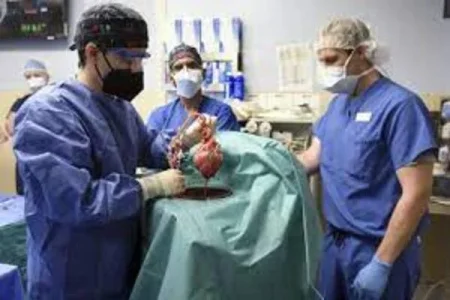
In a groundbreaking medical feat, doctors from Massachusetts General Hospital in Boston have achieved a major milestone in organ transplantation. Richard Slayman, a 62-year-old man from Weymouth, Massachusetts, suffering from end-stage renal disease, has become the first human recipient of a kidney from a genetically modified pig. The four-hour surgery, conducted on March 16, heralds a new era in the quest for more readily available organs to meet the overwhelming demand.
Having previously received a human kidney transplant at the same hospital in 2018, Slayman's hopes were dashed when the organ failed after five years, leading him back to dialysis treatments. However, this latest procedure offers renewed hope for a sustainable solution. According to the hospital, Slayman is recovering well and is expected to be discharged soon.
The kidney, provided by eGenesis of Cambridge, Massachusetts, underwent genetic editing to remove harmful genes and introduce certain human genes to enhance compatibility. Additionally, the company deactivated specific viruses inherent to pigs, mitigating the risk of infection in humans. Prior successful transplants of kidneys from similarly edited pigs into monkeys, as reported in October in the journal Nature, demonstrated promising outcomes, with some monkeys surviving for more than two years.
The groundbreaking surgery also marks a significant advancement in pharmaceuticals, with the use of experimental antibody therapy called tegoprubart, developed by Eledon Pharmaceuticals. This therapy aims to prevent rejection of the pig organ by the patient's immune system, offering new possibilities in organ compatibility.
The success of the pig kidney transplant not only offers hope to patients like Slayman but also propels the field of xenotransplantation closer to addressing the worldwide organ shortage. With over 100,000 people in the U.S. awaiting organ transplants, particularly kidneys in high demand, this breakthrough represents a crucial step forward in revolutionizing organ transplantation and saving countless lives.




